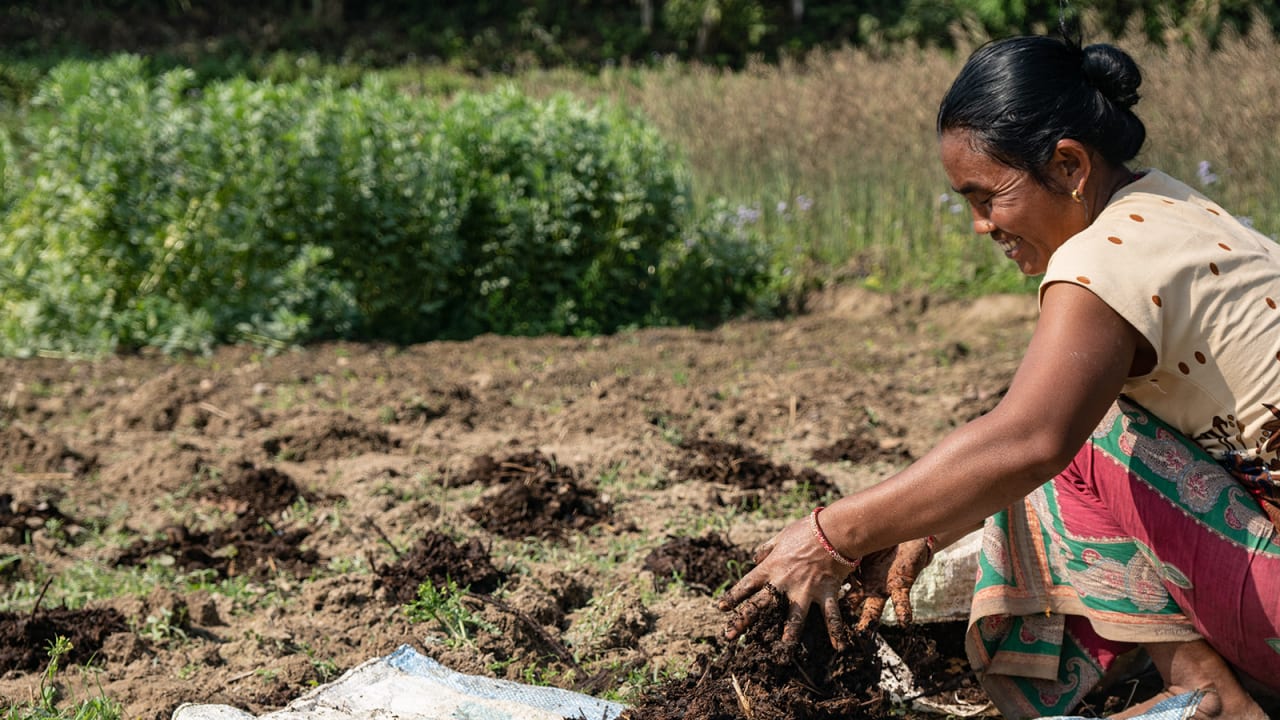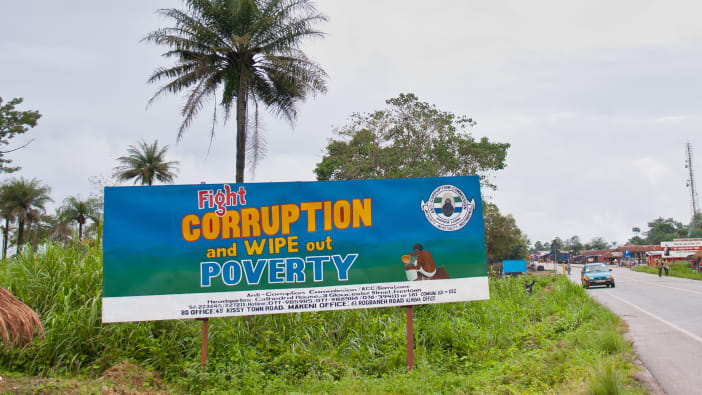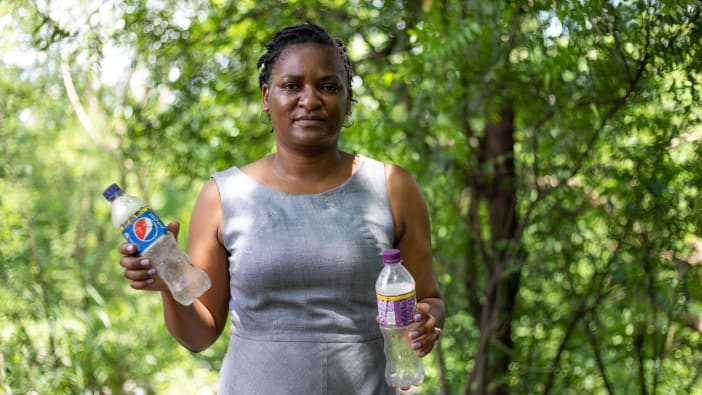You can download this case study from the panel below. To continue reading it on this page, scroll or swipe down.
Case studies
Advocacy in Nepal: Ensuring local budget accountability
A Tearfund partner trains community members to challenge corruption and influence local government planning decisions
2022 Available in English, French, Spanish and Portuguese

Pim Maka Thakure tends to one of her fields in a Village near Nawalparasi, Nepal. Photo: Lloyd Kinsley, Tearfund
You can download this case study from the panel below. To continue reading it on this page, scroll or swipe down.
Download resource
Other languages
However, vulnerable people in the community are often excluded from these User Committees, and as a result their voices are not accounted for in this powerful decision-making process for their community. Instead, other elite members of the community who have connections with decision-makers in the Village Development Committees (VDC) and/or the District Development Committees (DDCs) can take control of these User Committees and have excessive influence over the budget and timeline of the projects.
Therefore, Tearfund partner, United Mission to Nepal (UMN), organised training in participatory planning processes for communities in Dhaubadi VDC of the former Nawalparasi district. The training enabled participants to better understand the role of a User Committee and its procedures, and empowered vulnerable community members to be involved in every part of their local User Committee.
As a result, one of the participants of this training, Rupa Rana, returned to her village, empowered vulnerable community members, and together they successfully managed to build a new road for their village – by securing funds from the VDC and garnering the support of the villagers, who contributed a great deal of time and work to the project.
This community’s transformation of their User Committee to be more inclusive and empowering for everyone in the village has challenged others in Nepal to not tolerate the exploitation of these committees’ project budgets at the expense of the vulnerable.
This short case study, on the theme of governance, and corruption, illustrated the impact of using the following advocacy approaches:
- Community mobilisation
- Educating community members
- Government budget tracking
- Social accountability
Case studies can be used alongside the Advocacy toolkit, giving practical examples of the approaches it sets out.
Similarly Tagged Content
Share this resource
If you found this resource useful, please share it with others so they can benefit too.

Get our email updates
Be the first to hear about our latest learning and resources
Sign up now - Get our email updates




